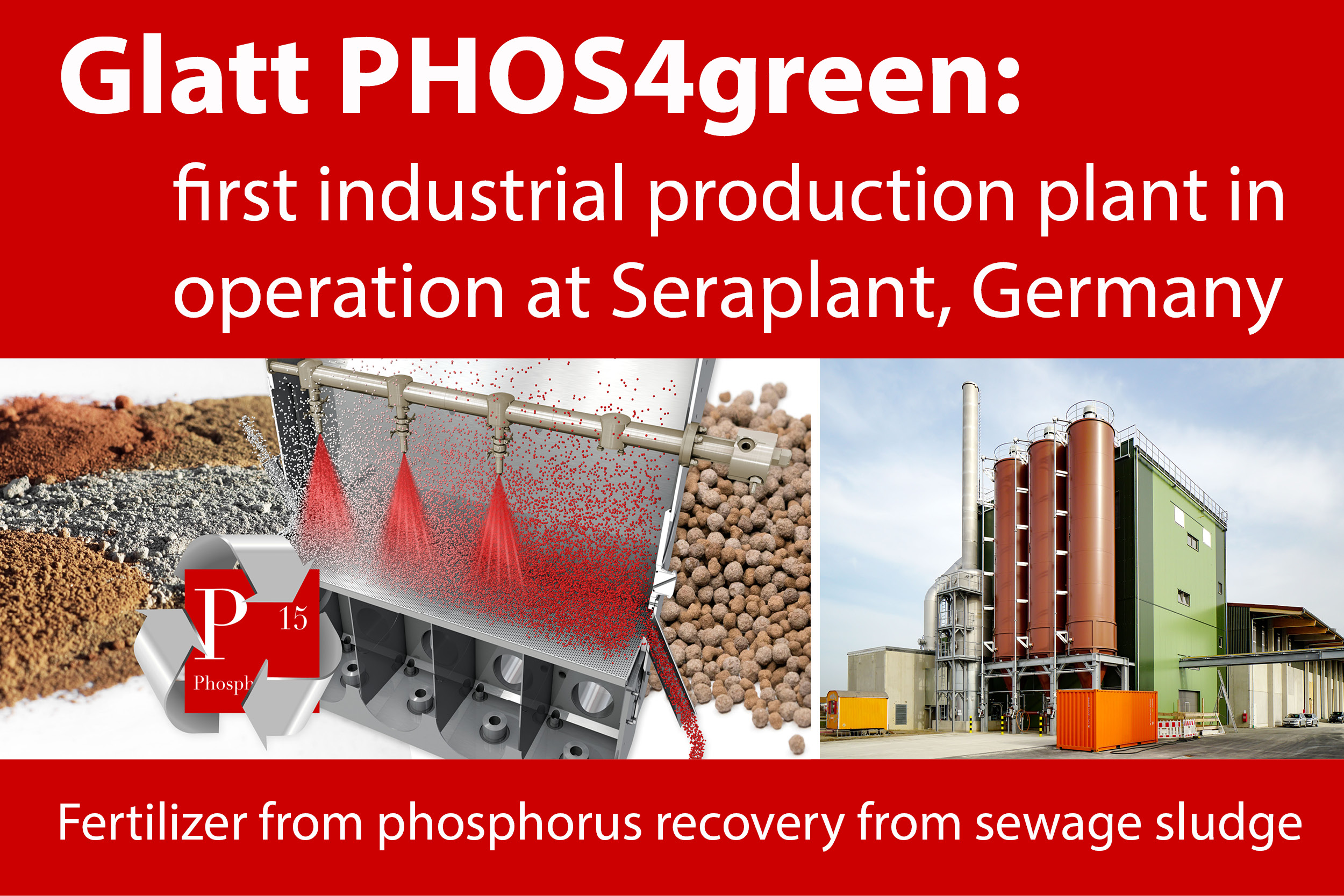
Production starts at first German PHOS4green plant for recycled fertilizers
Residue-free production of ready-to-use fertilizer from phosphate-containing sewage sludge ash is now possible, thanks to plant manufacturer and process expert Glatt Ingenieurtechnik, and fertilizer specialist Seraplant.
Weimar, Germany, June 2021: After a 20-month construction period, the first production plant for phosphate-containing mono and complex fertilizers made from recycled sewage sludge ash is now in operation. Seraplant operates the new plant at its headquarters in Haldensleben, Saxony-Anhalt, Germany. Glatt Ingenieurtechnik, a globally active plant engineering company, was responsible for the process development and construction. The official commissioning on May 31, 2021, was attended by Prof Dr Armin Willingmann, Saxony-Anhalt’s Minister for Economics, Science and Digitalization.
Seraplant invested more than 20 million euros in the new production facility, with the support of the state of Saxony-Anhalt. As a result, more than 20 new jobs have been created in the southern port of Haldensleben. The aim is to produce 60,000 metric tons of phosphate fertilizer per year, which will be ready for use, commercially available and compliant with the German Fertilizer Ordinance (DüMV). The company caters for agricultural enterprises in conventional and organic farming, agricultural and horticultural wholesalers, and the fertilizer industry.
Seraplant and Glatt have jointly developed the highly efficient, patent-pending production process. It bridges the gap in the phosphorus cycle by combining phosphorus recycling with a manufacturing process for new fertilizer, resulting in market-ready products. Glatt was commissioned by Seraplant to plan and implement the complete plant technology – from raw material delivery to suspension preparation, subsequent fluid bed spray granulation and filling of the ready-to-use finished fertilizers. The scope of services included process development, overall planning, supply of the entire process equipment and ancillary systems, as well as assembly and commissioning.
As Germany lacks natural phosphorus deposits, the Sewage Sludge Ordinance has triggered major changes throughout Germany: The recovery of phosphorus will become legally obligatory and direct soil-related recycling will no longer be permitted. Accordingly, sewage plant operators must review their concepts for sewage sludge disposal and, if necessary, realign them. The challenge is to create sustainable structures that ensure sewage sludge utilization in the long term.
With the production site in Haldensleben, the essential and sought-after nutrient phosphorus can be recovered from sewage sludge ash and used for new phosphate or compound fertilizers. As no hazardous intermediates, residues or waste gases are produced during the process, the project makes a significant contribution to the sustainable and resource-conserving use of phosphorus – a valuable material essential for life.
Development partners Glatt and Seraplant are now planning further phosphorus recovery projects.

 Copyright: Glatt
Copyright: Glatt